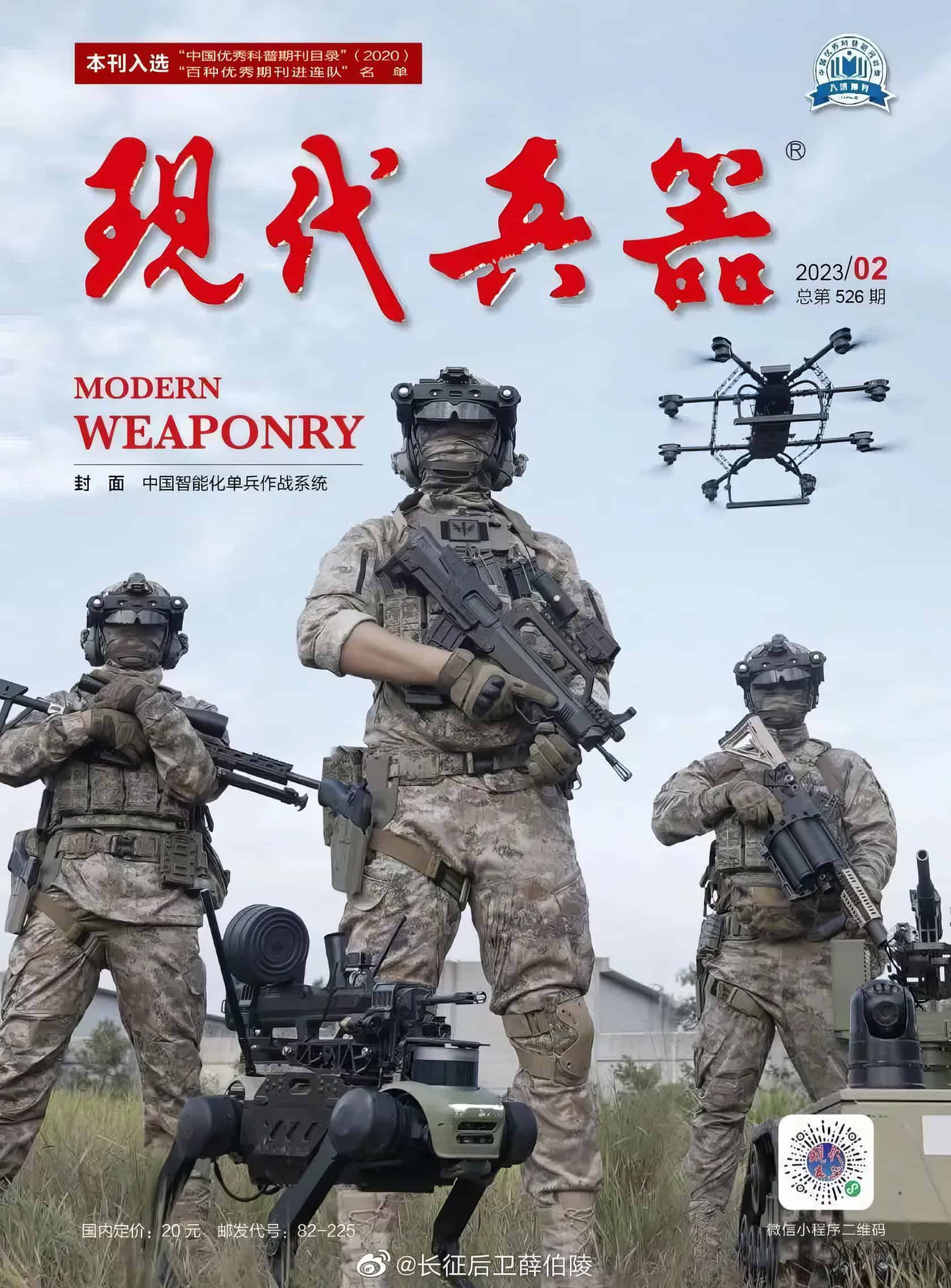Military experts worry about China’s rapid progress in creating enhanced soldiers with genetic modifications and AI systems. By 2030, China plans to lead the world in CRISPR gene editing and gene doping technologies for military use.
This article reveals 7 critical advances in Chinese super soldiers programs, including genetic engineering breakthroughs, AI integration methods, and biotech enhancements that boost physical and cognitive abilities.
China’s military transformation threatens global security balance.
Key Takeaways
China plans to lead CRISPR gene editing and gene doping technologies for military use by 2030.
Chinese Academy of Sciences publishes more CRISPR papers than any institution and initiated twice as many trials as the US.
CRISPR-Cas9 technology modifies DNA to boost muscle mass, improve immune systems, and enhance cognitive performance beyond normal limits.
AI-fused biotech soldiers combine genetic modifications with artificial intelligence systems for faster battlefield decision-making and superior combat abilities.
Super soldier programs create bioweapon risks, security threats, and force global military power shifts favoring genetically enhanced forces.
Table of Contents
China’s Advancements in Super Soldier Programs
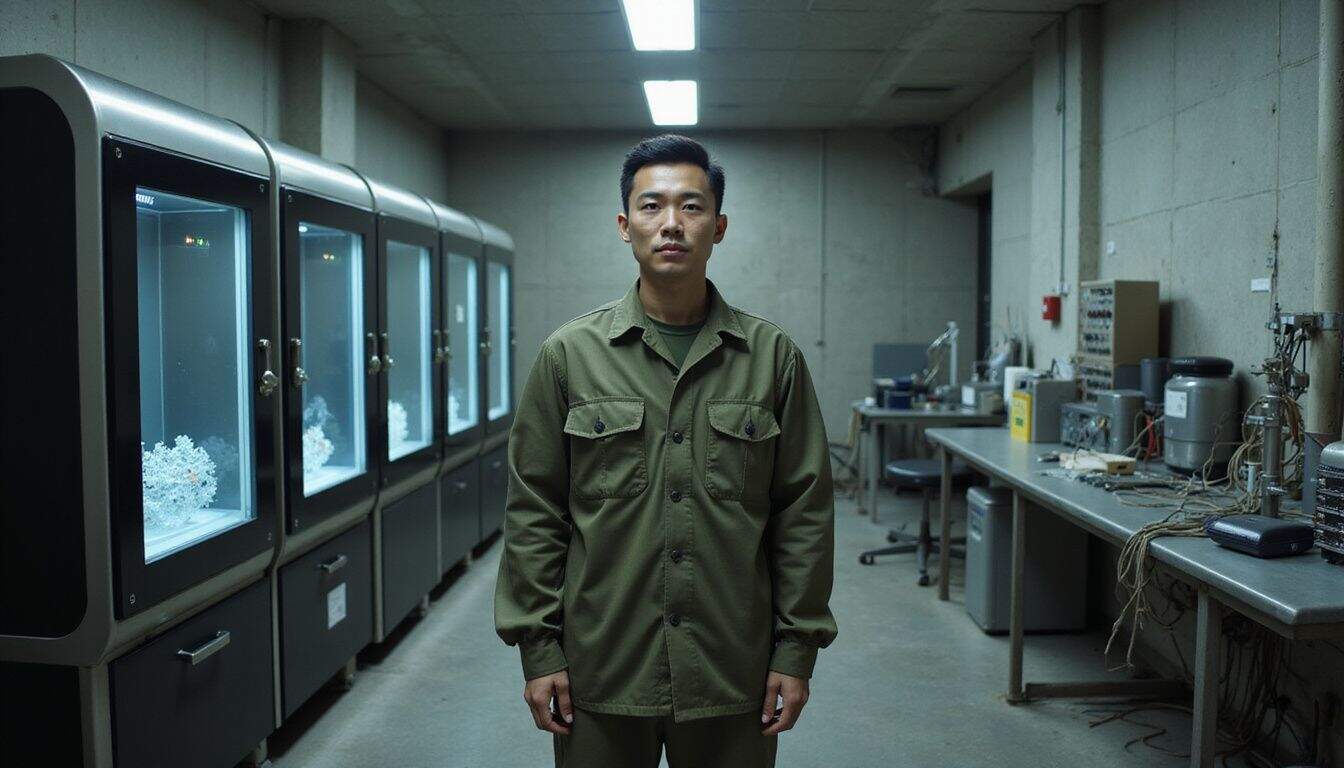
China’s military pushes genetic enhancement programs using CRISPR cas9 technology to create genetically modified soldiers with superior physical abilities. The People’s Liberation Army experiments with gene-editing techniques that boost muscle mass, improve immune systems, and enhance cognitive performance beyond normal human limits.
What gene editing technologies like CRISPR are used in China?

China uses CRISPR-Cas9 technology as its primary gene editing tool for military enhancement programs. The Chinese Academy of Sciences leads global CRISPR research, publishing more papers than any other institution since 2016.
Chinese scientists initiated twice as many CRISPR trials in three years compared to the United States. The People’s Liberation Army integrates these genetic modifications into soldier development programs through civil-military fusion strategies.
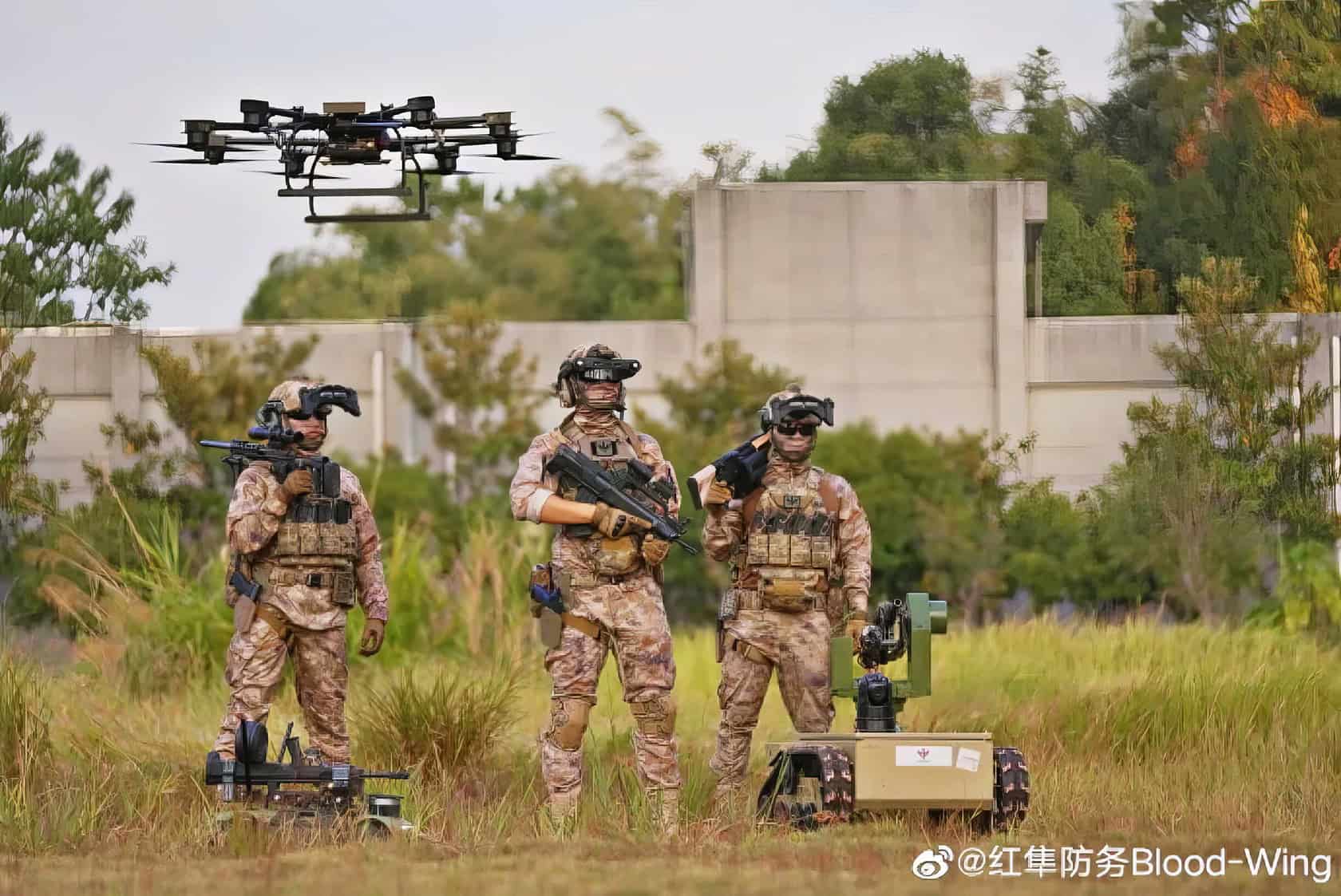
Recent military programs incorporate CRISPR Cpf1 enzyme systems for precise genome editing. These tools modify specific DNA sequences to boost muscle strength, improve memory function, and enhance immune systems.
CRISPR technology enables targeted DNA modifications to enhance traits and remove undesirable characteristics.
Chinese researchers target genes like CCR5 to increase resistance to infections and viruses. The Beijing Genomics Institute supports these efforts by providing genetic material analysis and deoxyribonucleic acid sequencing capabilities.
Military scientists edit non-coding RNAs to alter genetic traits, metabolism rates, and physical performance markers in test subjects.
How does gene doping enhance soldier capabilities biologically?

These CRISPR tools open doors to direct biological upgrades through gene doping. Gene doping works by editing DNA to boost specific traits that make soldiers stronger and smarter.
Scientists can modify genes to increase muscle mass and build stronger bones. Red blood cell production gets enhanced through targeted gene therapy, which helps soldiers carry more oxygen to their muscles.
Shanghai’s Institute for Advanced Medicine proved this works by using CRISPR to improve red blood cell production in mice with anemia. Vision improvements come from editing genes that control eye development and light sensitivity.
Soldiers can see better in dark conditions and spot targets from longer distances. Gene modifications also reduce fatigue by changing how cells process energy and handle stressors.
The human genome contains thousands of genes that control physical traits, and scientists can now edit these with precision. Genetic makeup changes allow soldiers to recover faster from injuries and resist infectious diseases better than normal humans.
Biotech and Human Performance Enhancement
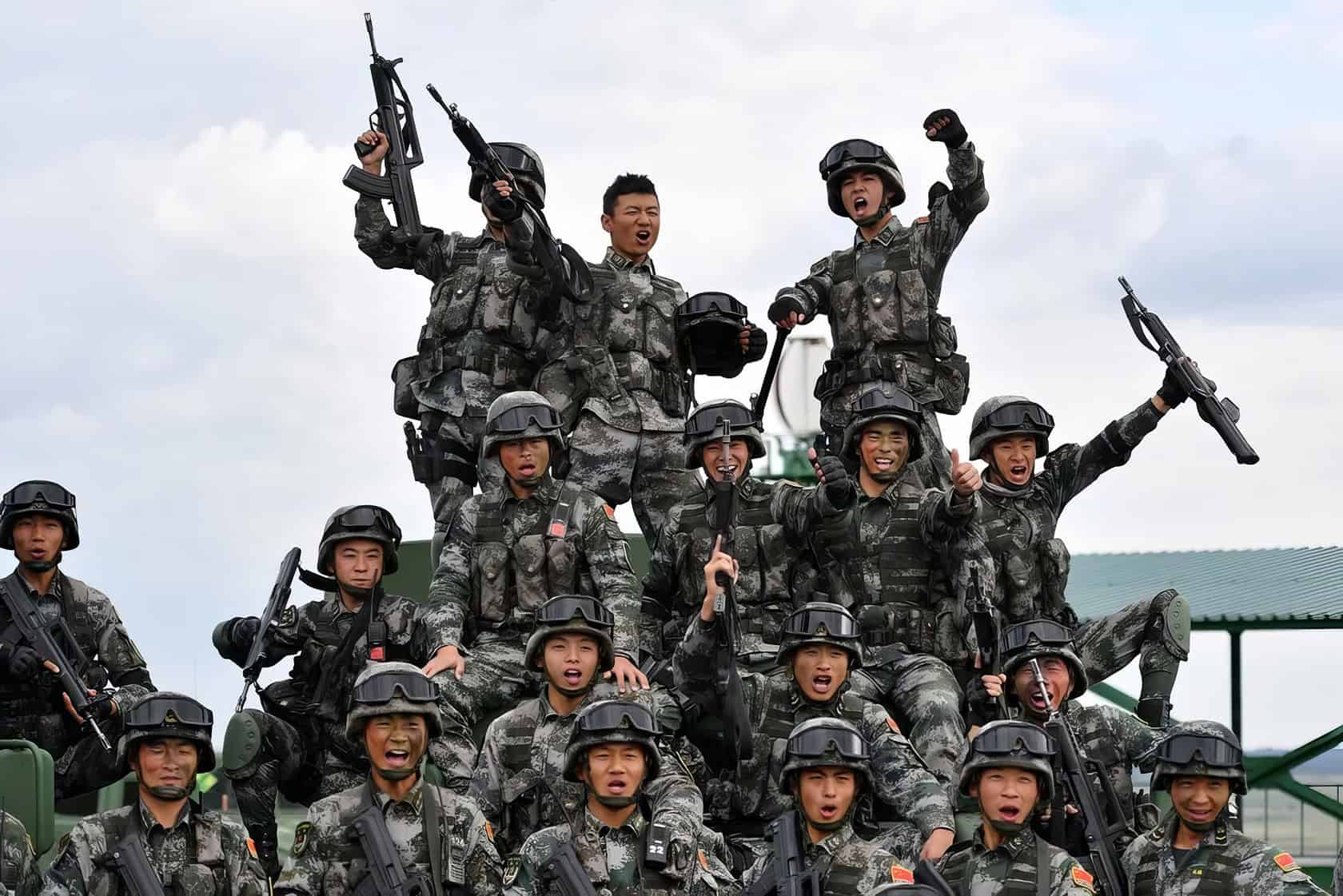
China’s biotech research pushes human limits through gene editing and pharmaceutical enhancements that boost soldier performance. CRISPR technology and targeted active pharmaceutical ingredients create soldiers with enhanced muscle mass, improved cognitive function, and resistance to sleep disturbances.
How can biotechnology improve cognitive functions in soldiers?

Gene editing technologies like clustered regularly interspaced short palindromic repeats (CRISPR) can boost memory, focus, and decision-making abilities in soldiers. Scientists target specific genes that control brain function, creating enhanced cognitive performance through direct genetic modifications.
Transcranial physical stimulation works alongside these genetic changes to improve mental processing speed.
Military researchers focus on reducing sleep disturbances and psychiatric symptoms that hurt battlefield performance. BGI Genomics and other biotech companies develop treatments that help soldiers think faster under stress.
These cognitive improvements give troops major advantages in complex combat situations, allowing them to process information quicker and make better tactical choices. Enhanced sensory abilities through biotechnology also play a crucial role in soldier performance.
Cognitive enhancement through gene editing represents a fundamental shift in military capabilities, creating soldiers who can outthink and outperform traditional forces.
What physical augmentation methods are being developed?
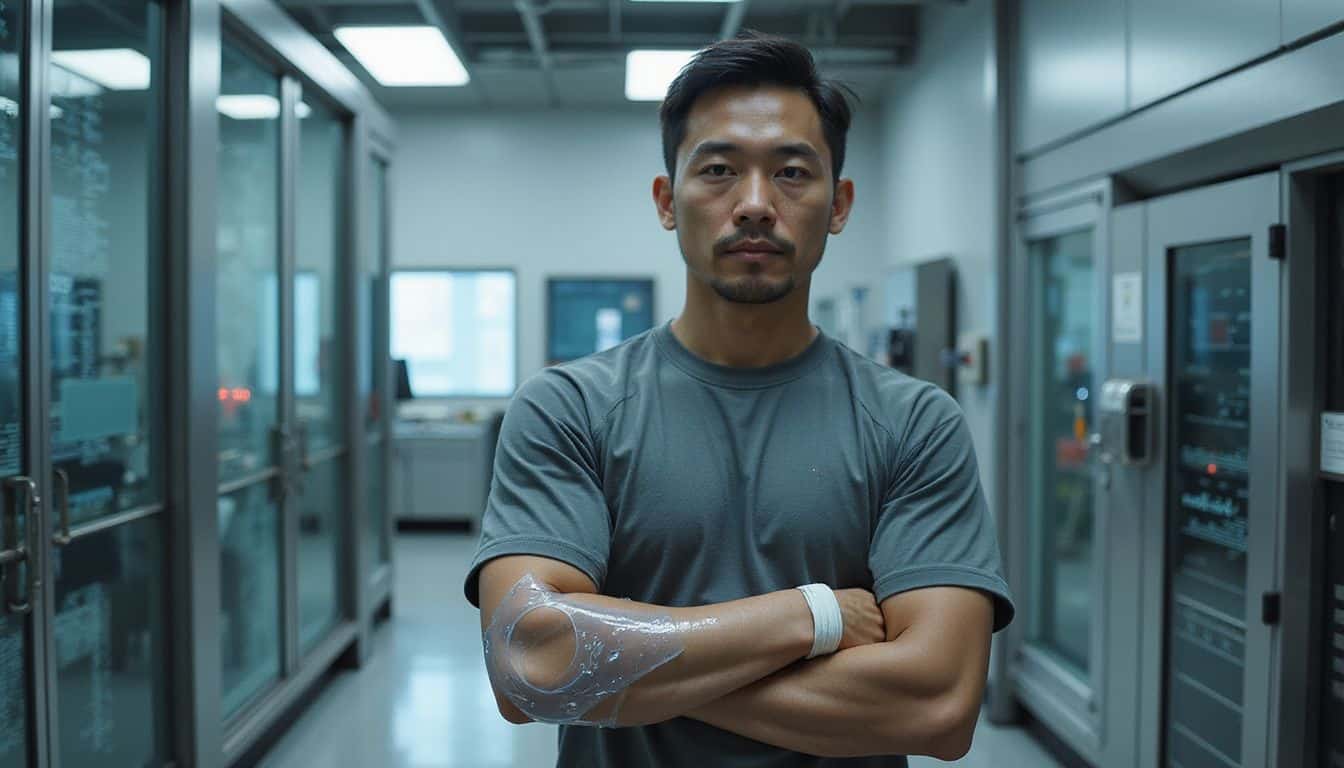
Chinese scientists focus on three main physical augmentation methods for super soldiers. CRISPR gene editing targets muscle mass increases and enhanced endurance capabilities. Shanghai’s Institute for Advanced Medicine used CRISPR to improve red blood cell production in mice with anemia, showing promise for human applications.
Gene-edited modifications boost strength, agility, and overall physical performance in military personnel.
Physical enhancements include accelerated wound healing and reduced infection risk through genetic modifications. Scientists work on increasing resilience to environmental stressors like extreme temperatures and radiation exposure.

Genetic abnormalities get corrected while beneficial traits get amplified. The People’s Liberation Army tests methods to reduce fatigue in soldiers through targeted gene transfer techniques.
These biotech advances create genetically engineered fighters with superior physical capabilities compared to standard troops.
AI integration takes these physical augmentations to the next level through smart monitoring systems.
AI Integration with Super Soldiers

China’s People’s Liberation Army now tests AI-powered soldiers who process battlefield data faster than any human brain can handle. These enhanced fighters use artificial intelligence to boost their decision-making speed, giving them split-second advantages that could reshape modern warfare completely.
What are AI-fused biotech soldiers?
 AI-fused biotech soldiers combine genetic changes with smart computer systems to create super-powered military troops. The People’s Liberation Army uses CRISPR technology to fix hearing loss, brain injuries, and reduce fatigue in their soldiers.
AI-fused biotech soldiers combine genetic changes with smart computer systems to create super-powered military troops. The People’s Liberation Army uses CRISPR technology to fix hearing loss, brain injuries, and reduce fatigue in their soldiers.
These troops get biological upgrades through gene editing, then connect to artificial intelligence systems that help them make faster decisions on the battlefield.
Smart computer programs work directly with genetically modified soldiers to boost their fighting abilities far beyond normal human limits. The Chinese military merges civilian tech advances with military uses under their Military-Civil Fusion doctrine.
These AI-powered soldiers represent a major jump past drone warfare and old-style military tactics, creating troops that think faster and perform better than regular human fighters.
How does AI improve decision-making and battlefield efficiency?

AI changes military decision-making through instant data analysis and forecasting. These systems quickly process large amounts of battlefield data, giving commanders clear tactical edges.
Smart algorithms study enemy movements, weather patterns, and troop positions to forecast outcomes. This improved awareness allows faster tactical responses during combat.

AI-driven systems improve resource allocation and logistics in military operations. These technologies precisely coordinate supply chains, ammunition distribution, and medical support.
AI-powered communication networks allow smooth coordination among troops in various locations. Training simulations-enhanced training simulations improve soldiers’ readiness and performance before actual deployment, lowering risks and boosting success rates.
Ethical and Privacy Concerns

China’s super soldier programs raise serious human rights questions about consent and safety. Genetic modifications could create new biological weapons risks, making biosecurity issues worse than during past pandemics—learn more about potential benefits of human cloning to understand the full scope.
What are the human rights issues with super soldier programs?

Super soldier programs raise serious concerns about informed consent and soldier autonomy. Military personnel face pressure to undergo genetic modifications and biotech enhancements, often without full understanding of long-term health risks.
The People’s Liberation Army and other military forces may mandate these procedures, violating basic principles of voluntary medical participation. Soldiers cannot truly consent when their careers depend on accepting experimental gene editing technologies like CRISPR.
These programs create a two-tier military system where enhanced soldiers gain advantages over unmodified personnel, leading to discrimination and forced participation.

Genetic data collection from military personnel creates massive biosecurity issues and privacy violations. China’s National Gene Bank retains genetic information from prenatal tests and military screening programs, raising concerns about DNA misuse for national security purposes.
This data becomes a weapon against soldiers and their families, enabling targeted biological weapons development. The pharmaceutical industry profits from these human experiments while soldiers bear the health risks from counterfeit drugs and untested medicines.
Gene doping affects not just individual soldiers but their future children through heritable genetic modifications, violating the rights of unborn generations who cannot consent to these permanent changes.
What risks do genetic modifications pose in warfare?

Human rights violations in super soldier programs create a foundation for even more dangerous risks in warfare. Genetic modifications pose threats that function like time bombs, creating unforeseen consequences that military leaders cannot predict or control.
Off-target mutations represent the most immediate danger. CRISPR gene editing can alter DNA sequences beyond the intended targets, causing disorders that appear months or years later.
Jennifer Doudna’s research shows these unintended genetic changes can affect muscle mass, cognitive functions, and immune responses in ways scientists cannot anticipate. Pathogenic microorganisms may exploit these genetic vulnerabilities, turning enhanced soldiers into biological weapons against their own forces.
The People’s Liberation Army faces similar risks with their enhancement programs, where genetic modifications could backfire during combat operations.
Potential Global Impacts

China’s super soldier programs could trigger a global arms race, forcing nations to develop their own enhanced warriors or risk military obsolescence. These genetic modifications might spread beyond military use, creating new forms of biological weapons that could destabilize international security…
and that’s just the beginning of how warfare itself might change forever, including new threats like how to protect yourself from sonic weapons.
How do super soldier programs create security threats and bioweapon risks?

Super soldier programs create dangerous security threats because they blur the line between medical research and weapons development. CRISPR-Cas technology costs keep dropping, making genetic tools cheaper for state agencies and terrorist groups.
The People’s Liberation Army’s alleged human experiments on military personnel show how nations push ethical boundaries. These programs give countries new ways to create bioweapons that target specific genotypes or exploit genetic weaknesses in enemy populations.
State agencies can misuse genetic data from programs like Russia’s genetic passports to develop targeted biological weapons. Declining costs of molecular genetics tools mean terrorists could access the same technologies used for soldier enhancement.
Gene editing research for muscle mass increases or cognitive improvements provides blueprints for creating harmful bacteria or viruses. David Kilcullen warns that genetic warfare capabilities could destabilize global military power, forcing updates to biological warfare agreements that haven’t kept pace with CRISPR advances.
How might military power dynamics shift globally?

China’s super soldier programs will create massive shifts in global military power. The People’s Liberation Army gains genetic and AI advantages that traditional forces cannot match.
Countries without biotech capabilities face serious disadvantages on future battlefields. Nations must invest billions in genetic research or risk falling behind China’s enhanced troops.
U.S. intelligence tracks these developments closely, pushing America to boost domestic biotech innovation. Military power no longer depends only on weapons and numbers. Enhanced soldiers with improved muscle mass, faster decision-making, and better proprioception change everything.
Traditional military strategies become outdated against genetically modified forces. The gap between enhanced and regular armies grows wider each year. This creates new security threats that reshape global defense policies completely.
How Will China’s Super Soldier Programs Reshape Global Warfare in 2025?

China’s military advances will create soldiers with enhanced muscle mass and improved cognitive abilities by 2030. CRISPR gene editing allows the People’s Liberation Army to modify DNA sequences for better strength and endurance.
These bioengineered troops will process information faster and resist fatigue longer than regular forces. Gene doping techniques boost physical performance while AI integration sharpens battlefield decision-making.
The civil-military fusion strategy accelerates dual-use biotechnology development, giving China a significant edge over competitors.
Military power dynamics will shift dramatically as genetically modified soldiers enter combat zones. The U.S. faces mounting challenges maintaining its defense superiority against China’s rapid biotechnology progress.
Enhanced troops with modified DNA will dominate traditional forces through superior physical capabilities and mental processing speed. Bioweapon risks increase as genetic modifications spread beyond controlled military applications.
Global security threats multiply when nations deploy soldiers engineered for specific combat advantages, creating an arms race in human enhancement technologies.
People Also Ask
What genetic technologies are China using to enhance soldiers?
China uses CRISPR gene editing to boost muscle mass and improve physical traits. The People’s Liberation Army focuses on DNA modifications that could enhance combat performance. These advances target specific genes linked to strength and endurance.
How do non-invasive prenatal tests relate to military enhancement programs?
NIPT and prenatal screening help identify genetic markers early. This technology allows selection of embryos with desired traits. China could use this for future soldier development programs.
What role do active pharmaceutical ingredients play in soldier enhancement?
APIs help create drugs that modify soldier performance and recovery. These compounds target specific biological pathways to boost strength. Compliance with dosing schedules becomes critical for effectiveness.
Can genetic modifications help soldiers recover from traumatic brain injury?
Gene therapy shows promise for treating brain injuries in combat. DNA recombination techniques could repair damaged neural pathways. Research focuses on faster healing and better cognitive function.
How does researcher Josiah Zayner’s work connect to military applications?
Zayner’s DIY gene editing experiments demonstrate how accessible this technology has become. His work with genetic modifications creates new possibilities for enhancement. Military programs could adapt similar techniques for soldier improvement.
References
https://www.govinfo.gov/content/pkg/GOVPUB-D101-PURL-gpo129750/pdf/GOVPUB-D101-PURL-gpo129750.pdf
https://www.sciencedirect.com/science/article/pii/S2590093521000394
https://interestingengineering.com/military/china-genetically-enhanced-super-soldiers (2025-04-22)
https://www.army.mil/article/286707/innovating_defense_generative_ais_role_in_military_evolution
https://www.tandfonline.com/doi/full/10.1080/21507740.2025.2530956?af=R
https://pubmed.ncbi.nlm.nih.gov/40680292/
https://archives.law.nccu.edu/cgi/viewcontent.cgi?article=1044&context=siplr
https://tdhj.org/blog/post/gene-editing-soldiers-crispr/ (2024-03-18)
https://www.biobasedpress.eu/2021/06/bioweapons-and-super-soldiers-genetic-technology-for-warfare/

